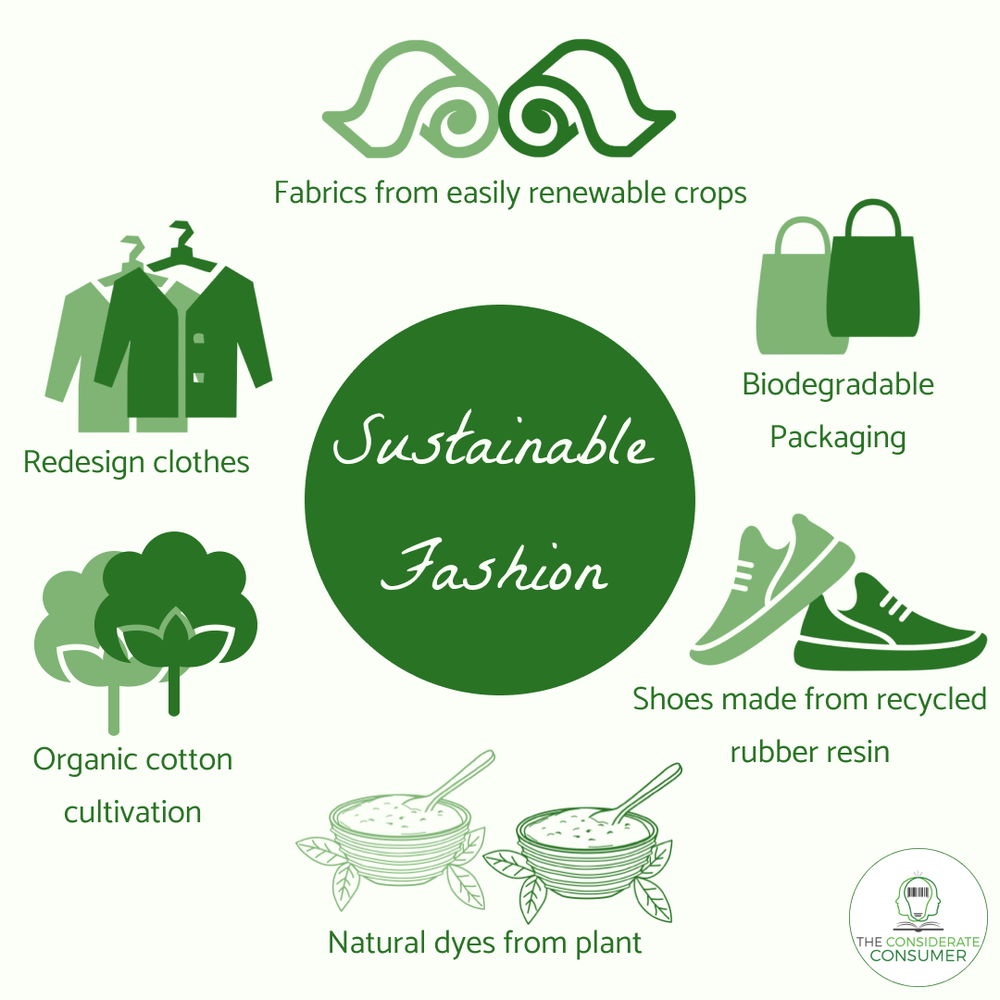Fashion has a significant impact on our environment and society, from the production process to the disposal of clothing items. The fashion industry is one of the largest polluters globally, generating greenhouse gas emissions, water pollution, and waste. As a result, sustainability in fashion has become a crucial topic, prompting consumers and brands to take action to minimize the negative impact of fashion on the environment and promote ethical practices. In this blog post, we will explore what sustainability means in fashion and why it is essential.
Sustainability in fashion refers to creating clothing and accessories in an environmentally and socially responsible manner. It involves taking into account the entire lifecycle of a product, from the raw materials used to create it to its eventual disposal. Sustainable fashion aims to minimize harm to the environment, reduce waste and promote ethical labor practices.
Sustainability in fashion can be achieved in many ways. Here are some of the most common approaches:
- Use of Sustainable Materials: The fashion industry has a significant impact on the environment, and a significant part of it comes from the production of raw materials. Sustainable fashion aims to reduce this impact by using environmentally friendly materials such as organic cotton, recycled fabrics, and other sustainable alternatives.
- Ethical Labor Practices: Sustainable fashion also means fair and safe working conditions for workers who create clothing items. Brands that prioritize ethical labor practices ensure that their workers receive fair wages, are not exploited, and have a safe working environment.
- Reducing Waste: Sustainable fashion aims to reduce waste by creating clothing items that are durable and long-lasting. Brands can achieve this by using high-quality materials, designing timeless pieces, and offering repair services. Additionally, recycling and upcycling can also help reduce waste by giving old clothing items a new life.
- Sustainable Production: Sustainable fashion involves responsible production processes that minimize harm to the environment. This includes using renewable energy sources, reducing water usage, and minimizing the use of harmful chemicals.
Why is sustainability in fashion important?
Sustainability in fashion is important for several reasons. Firstly, it helps to reduce the negative impact of the fashion industry on the environment. The fashion industry is one of the largest polluters globally, and its impact can be seen in the form of greenhouse gas emissions, water pollution, and waste. By adopting sustainable practices, fashion brands can reduce their carbon footprint, conserve water resources, and minimize waste.
Secondly, sustainability in fashion promotes ethical labor practices. The fashion industry is notorious for its exploitative labor practices, particularly in developing countries where most clothing items are produced. Brands that prioritize ethical labor practices ensure that workers receive fair wages, are not exploited, and have a safe working environment.
Finally, sustainability in fashion is essential because it promotes conscious consumerism. Consumers are becoming more aware of the environmental and social impact of their purchasing decisions. By offering sustainable fashion options, brands can help consumers make more informed choices and promote a shift towards a more sustainable fashion industry.
In conclusion, sustainability in fashion is crucial to reduce the negative impact of the fashion industry on the environment and promote ethical labor practices. As consumers, we can play a role in promoting sustainability in fashion by choosing to support brands that prioritize sustainability and by making more informed purchasing decisions. By working together, we can create a more sustainable and ethical fashion industry.
